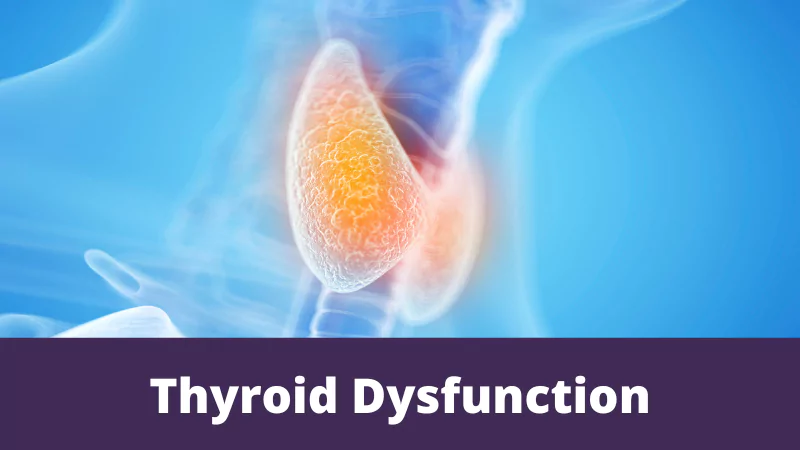What are Thyroid Disorders?
A deficiency of thyroid hormones can affect virtually all bodily functions as the thyroid gland hormones regulate metabolism in every cell in the body. The two most common thyroid dysfunctions are hypo- and hyperthyroidism.
Hypothyroidism is the underproduction of the thyroid hormones T3 and T4. Hypothyroid disorders may occur as a result of:
- congenital thyroid abnormalities (thyroid deficiency at birth)
- autoimmune disorders such as Hashimoto’s disease
- iodine deficiency (more likely in poorer countries)
- the removal of the thyroid following surgery to treat severe hyperthyroidism and/or thyroid cancer
Typical symptoms are abnormal weight gain, tiredness, baldness, cold intolerance, and irregular heart beat. Hypothyroidism is treated with replacement of the thyroid hormones.
Hyperthyroidism, or overactive thyroid, is due to the overproduction of the thyroid hormones T3 and T4, which is most commonly caused by the development of Grave’s disease, an autoimmune disease in which antibodies are produced which stimulate the thyroid to secrete excessive quantities of thyroid hormones. It presents with symptoms such as a thyroid goiter (swelling), protruding eyes, palpitations, excess sweating, diarrhoea, weight loss, muscle weakness and an unusual sensitivity to heat. The appetite is also often increased.
Research
This study examined the link between thrombophilia (blood clotting in relation to high homocysteine and hence the MTHFR mutations) and autoimmune thyroiditis. Of the 50 patients assessed, 15 patients were found to have a MTHFR mutation. 3 patients were 677TT, 5 patients held the C677T mutation, 2 patients with the 1298CC genotype, 4 patients with the A1298 allele and 1 compound heterozygous C677T/A1298C mutation. Overall, Bulgar et al (2011) stated MTHFR mutations within this group were common, with further research needed to concretely explain the link between MTHFR and autoimmune thryoiditis.









